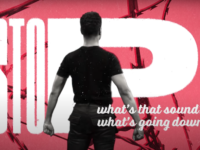“Old Lang Syne,” this will never be. It doesn’t have the required sentimentality. No, U2’s “New Year’s Day” is a political song, but a special one in that – like some of the best political songs – it started out as a love song: I want to be with you, be with you night and day …
Then Bono heard that the Polish government’s brutal early 1980s-era martial law was to be lifted on New Year’s Day. The lyrics (amended to refer to the Soviet bloc’s first independent trade union, led by Lech Walesa) appear to take a hopeful turn, but instead with each pause reveal a bubbling sense of cynicism about real change: “Nothing changes, on New Year’s Day. … I, I will begin again. I, I will begin again. …”
Appropriate, since it took the balance of the decade for workers’ rights to take hold in Poland.
Of course, it was not this ripped-from-the-headlines theme but a memorably evocative delivery that kept “New Year’s Day” on the Billboard charts for 12 weeks, becoming U2’s initial UK Top 10, its first single to chart in America – and bringing the band into the mainstream for good. The elegiac, then broadly spiritual “New Year’s Day,” even today, sounds nothing like the bustle of MTV that surrounded it.
The Edge – expertly, somehow, combining open-hearted honesty and arena-rock musicality – plays both piano and guitar on the song, and in the snowbound video that found heavy rotation thereafter. He and the others were already fully formed rock stars, whether we knew it yet or not.
Arriving on the aptly titled War, U2’s third long-player, “New Year’s Day” is part of a recording that peers with an inquisitive anger, direct and fierce, into the problems of this world. No where else does the band more consistently address such weighty subjects, but it does so here without the self-consciousness that occasionally marred U2’s later, more celebrated efforts.
For all of that, on “New Year’s Day” and other key tracks from War like “40” and “Sunday Bloody Sunday,” U2 ultimately seems to admit that there are no easy answers – encouraging a sense of patience and of community across these conflicts, rather than offering the easy bromide. “40,” for instance, references Psalms 40.
Dozens of winters later, as “the world in white gets underway,” that’s a message still worth exploring.
- The Bright Spots in George Harrison’s Troubled ‘Dark Horse’ Era - December 29, 2024
- The Pink Floyd Deep Cut That Perfectly Encapsulates ‘The Wall’ - November 29, 2024
- Why Pink Floyd’s ‘The Endless River’ Provided a Perfect Ending - November 11, 2024



